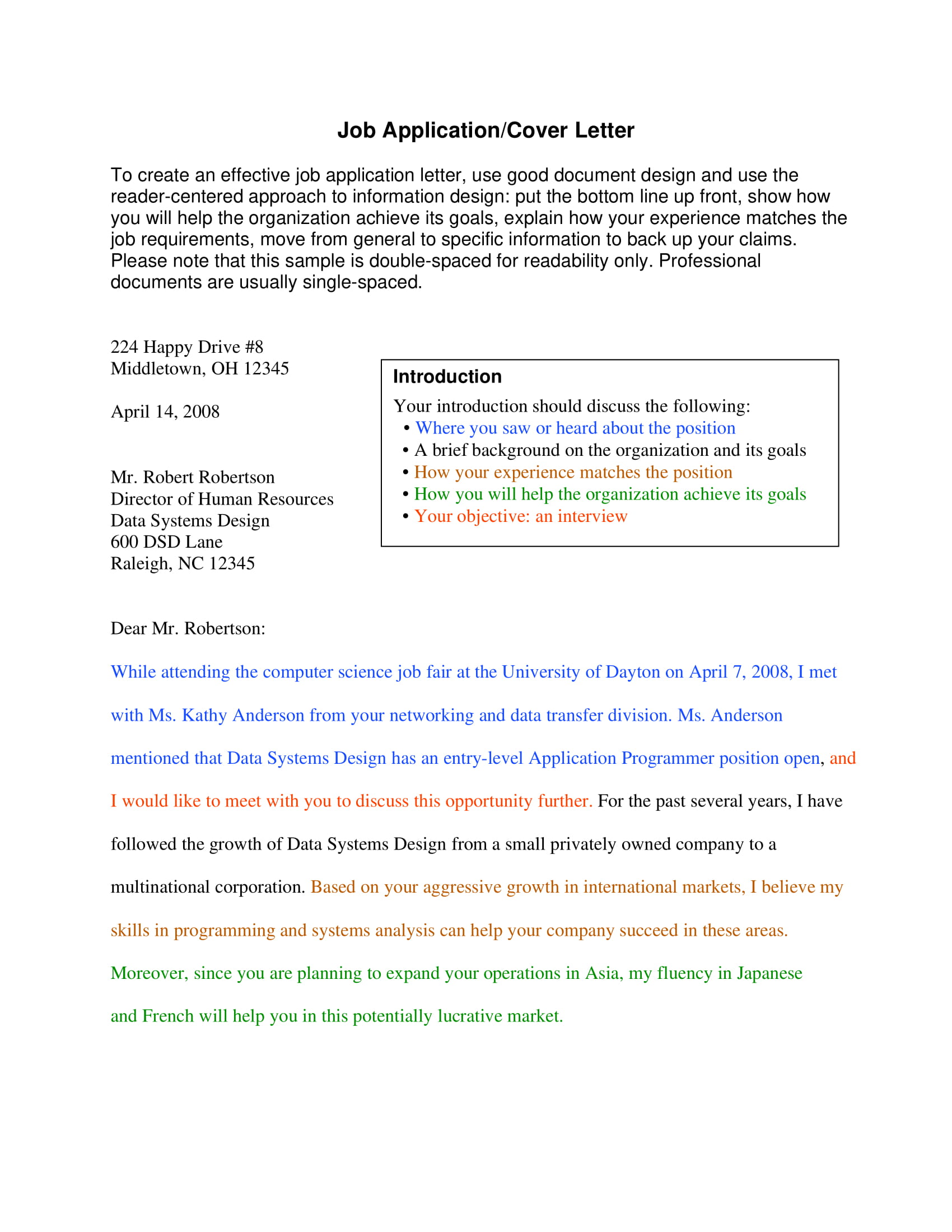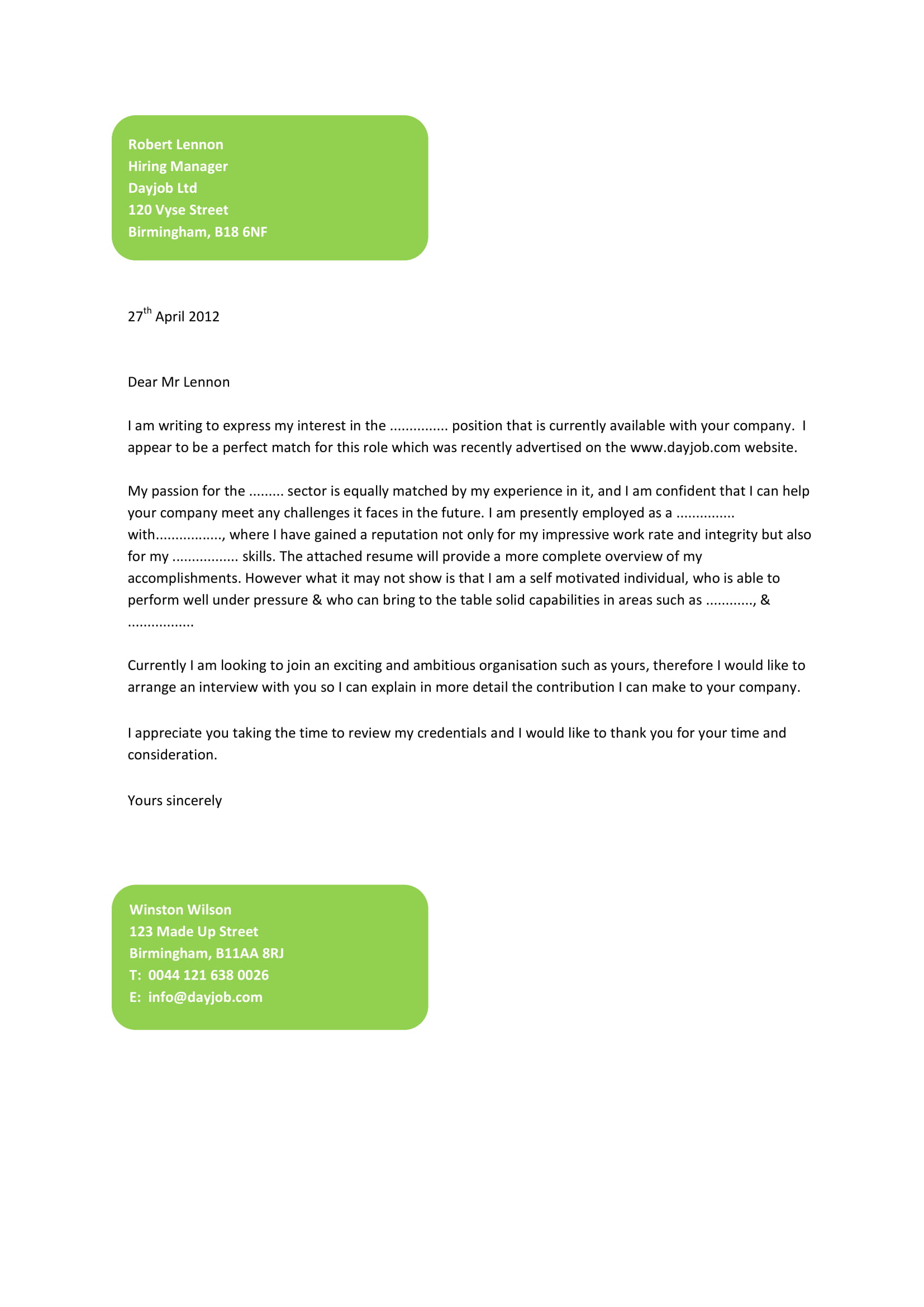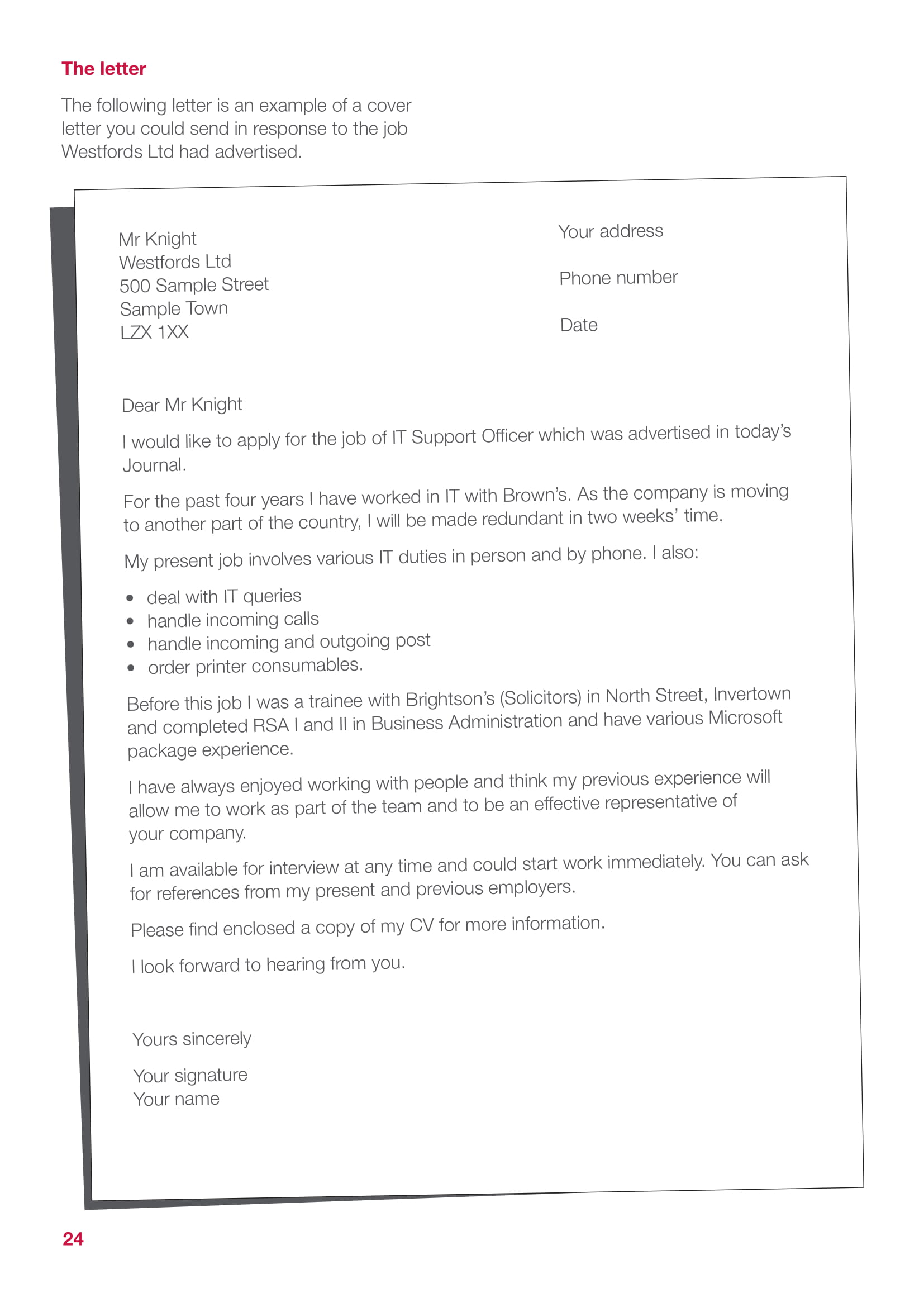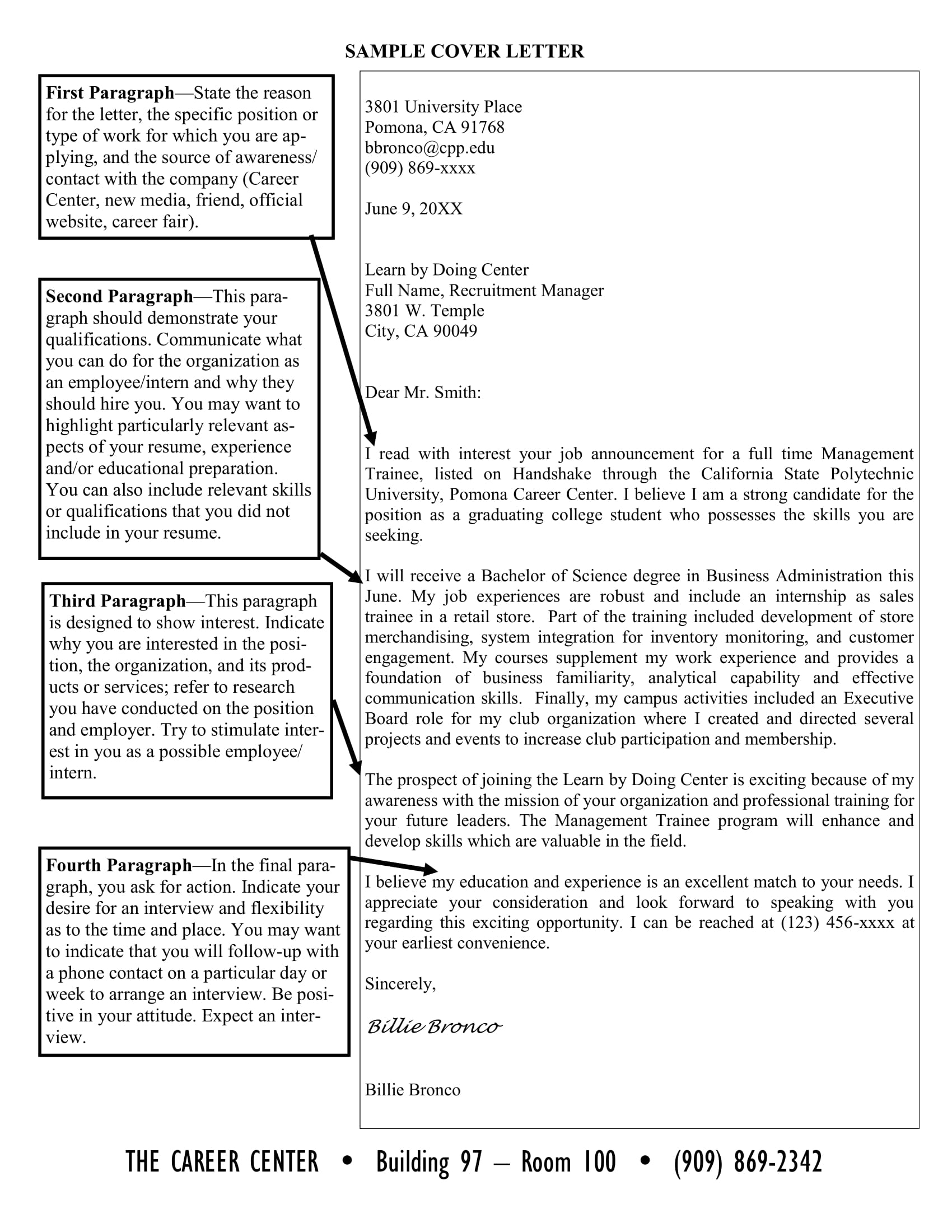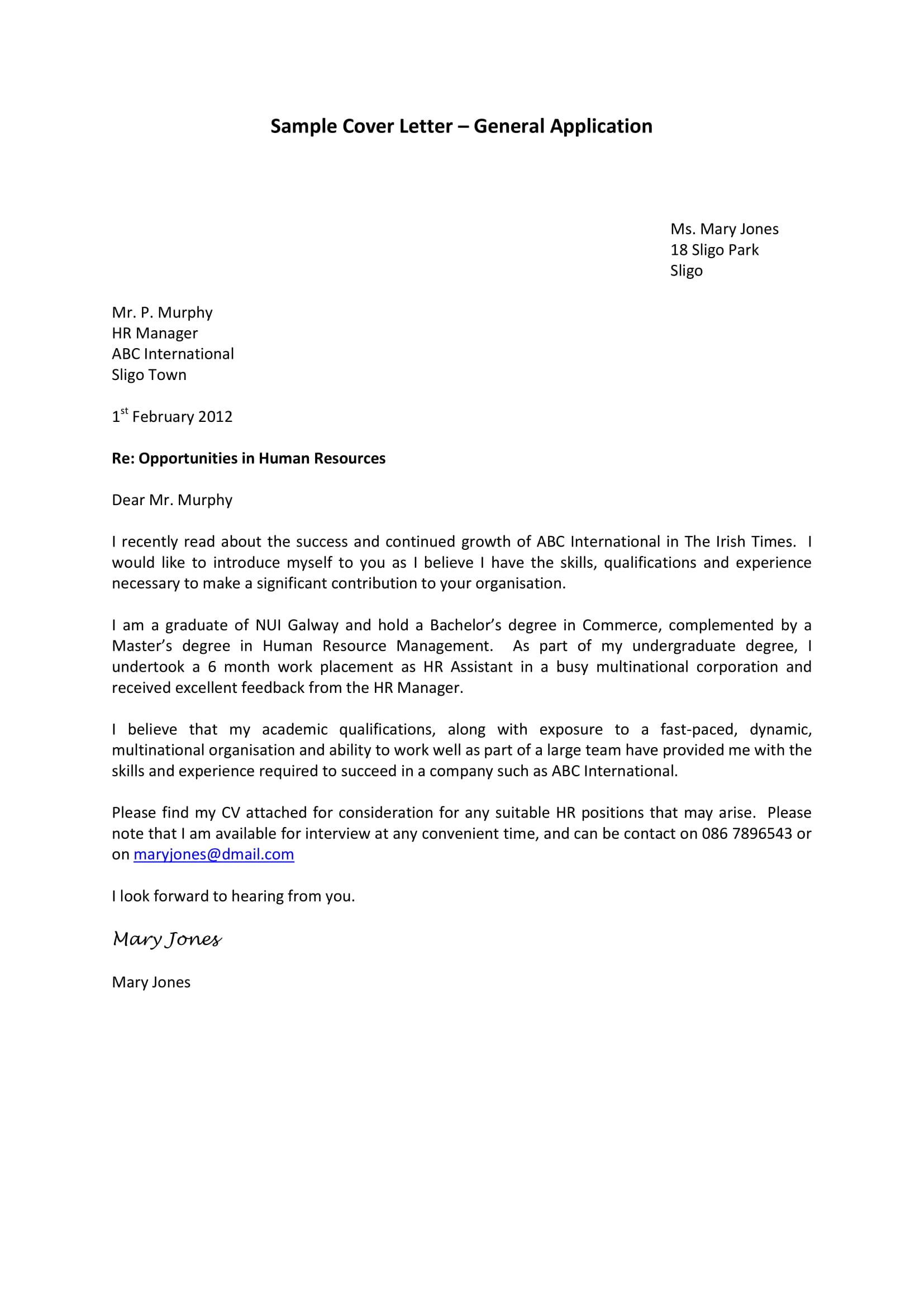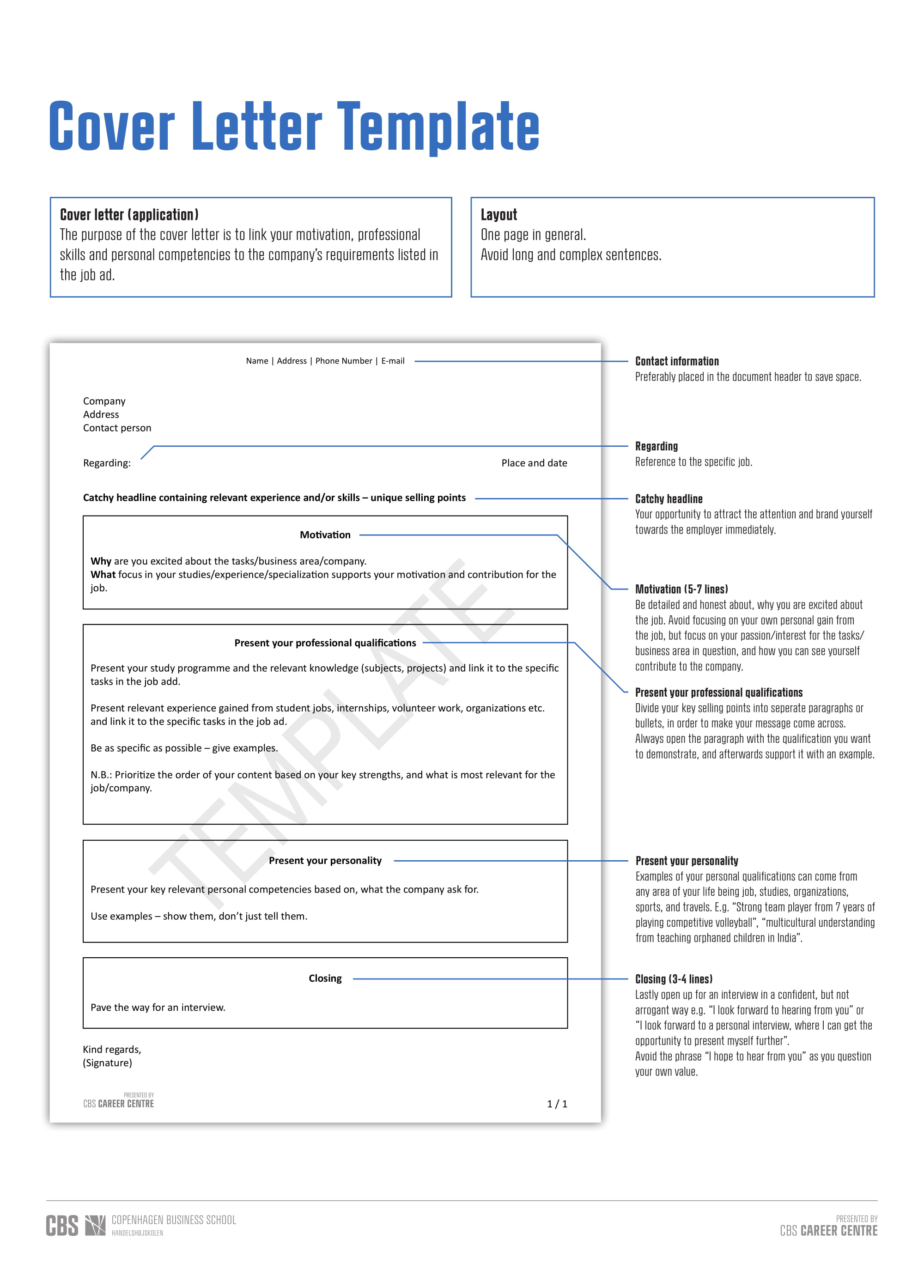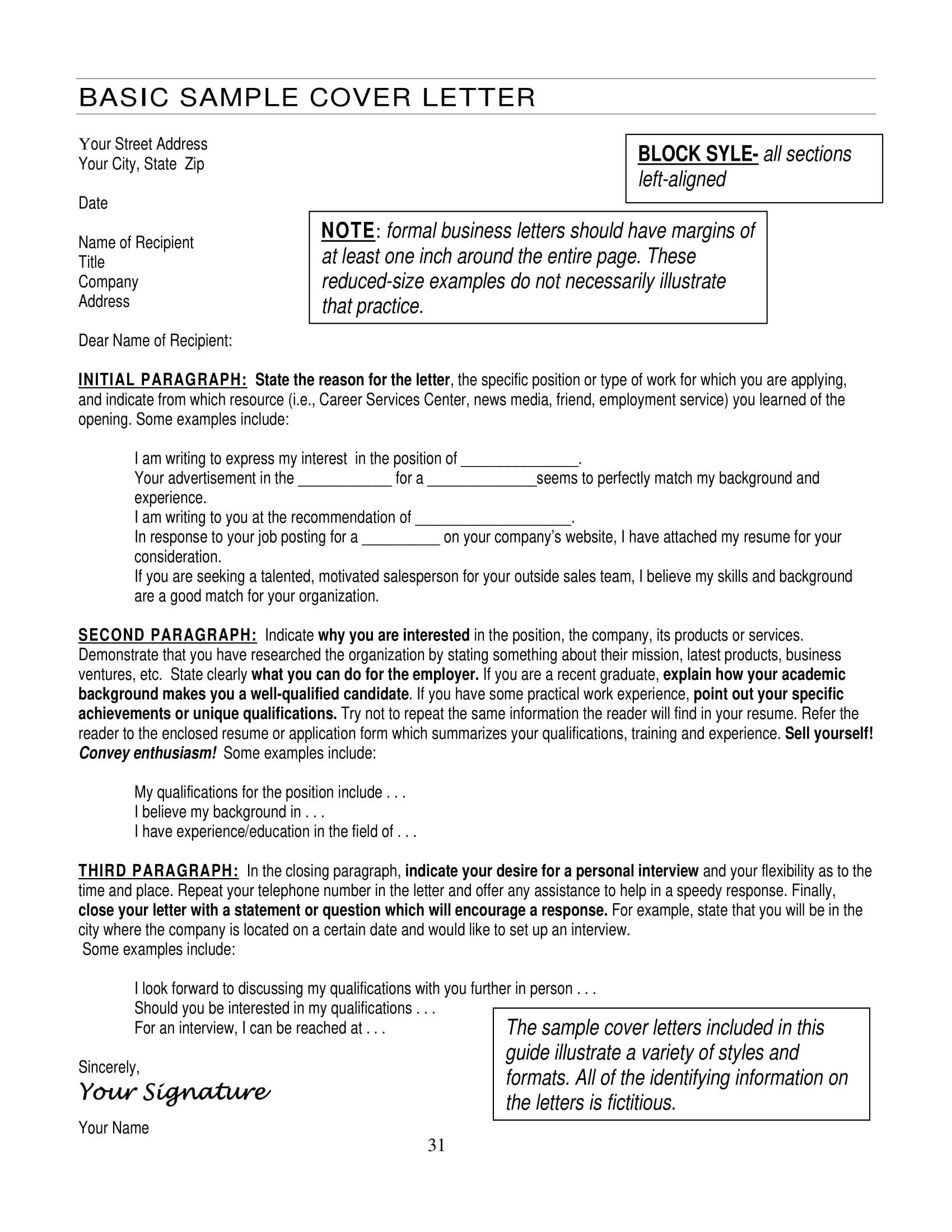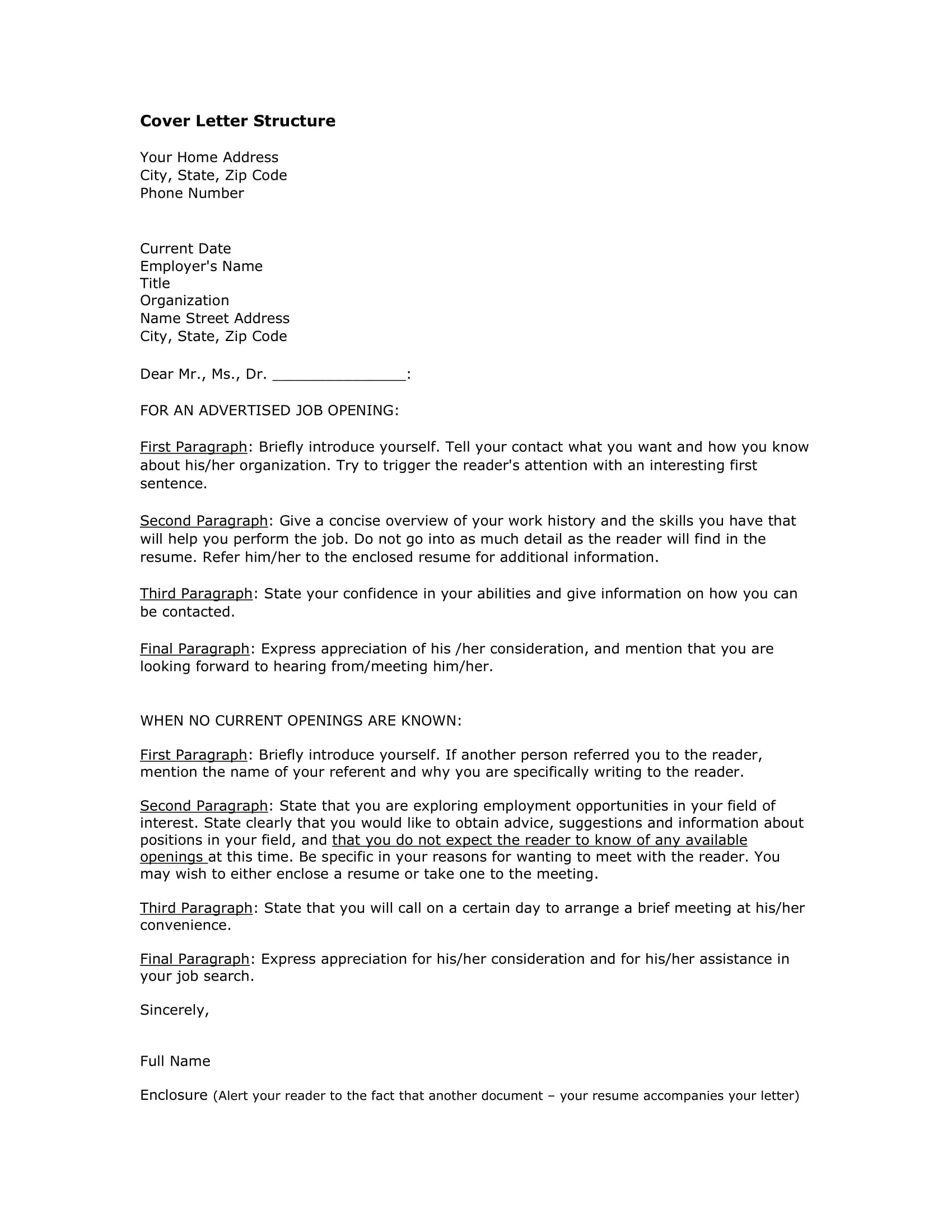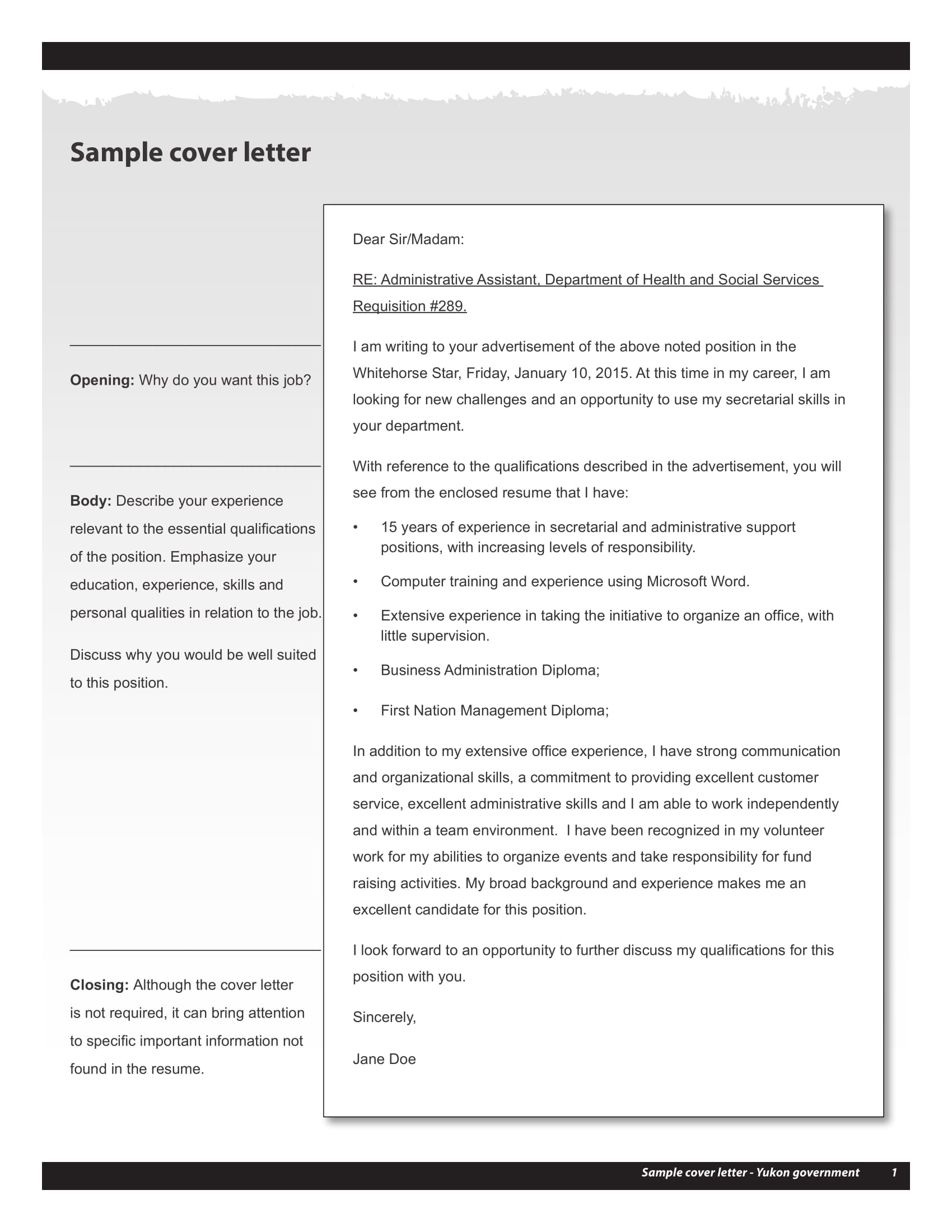10+ Professional Cover Letter Examples to Download
You might get by on passing a recruitment process just by having a resume with a strong resume summary statement and a detailed body of discussion. However, there are some advantages that you can expect if you will also pass a professional cover letter. This document will help you to further present your qualifications especially those that are not highlighted or even included in your professional profile.
We have gathered a number of professional cover letter examples in PDF format so you can have guides when making your own simple cover letter. Download them here and thoroughly browse through their content for you to fully maximize their usage.
Free Professional Freshers Sample Cover Letter
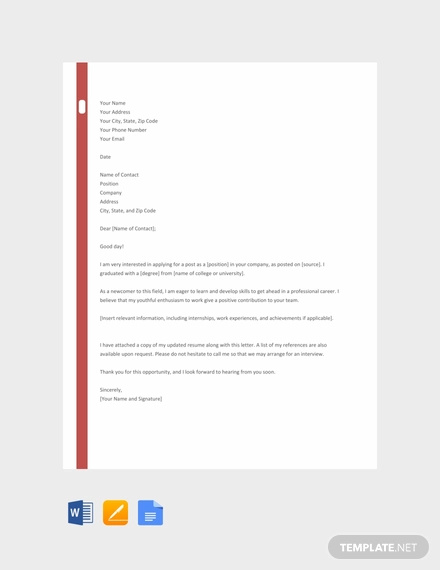
Job Application Cover Letter Example
Simple Professional Cover Letter Example
Why Do You Need a Cover Letter?
Cover letters are understated by some applicants for the reason that not all companies require the submission of this document. Even if this fact still exists nowadays, you should not take it against your desire to send a cover letter to your prospective employer. Simple cover letters can give you a lot of benefits during the hiring and selection process. Here are some of the reasons why you need to create and send a cover letter:
1. There are a lot of resumes, curriculum vitae and professional profiles that recruitment agents and officers need to evaluate in every hiring activity. Not all applicants will send a cover letter which will help your application stand out if you have one. Make sure that the application instructions are not against the usage of a cover letter before sending or handing it to the hiring personnel. You may also see formal letter examples and samples
2. Using a cover letter can make you look more desirable. This document can create an impression that you truly want to be considered for the job position open for employment. Aside from the additional effort that you exerted to create more documents to submit, the content of your cover letter can also help you increase your value as a potential employee. You may also like complaint letter examples & samples
3. Not all your strengths can be placed on your resume as there is a limited space and formatting style present in this document. This is why a cover letter is necessary as it allows you to give more details of who you are as a professional, in the most formal way possible. Through a cover letter, you can further elaborate the items in your resume or you can also create a new discussion that can be used as supporting details for the claims of your profile. You may also check out business reference letter examples
4. Competition in all industries is stiff. If you have a cover letter, then you can easily present your uniqueness and strengths that can help you be one of the best choices for the work post that you are applying for. Having a cover letter makes it easier for you to convince employers that you have the deliverable and qualifications that will allow you to function based on the demands of the business and your targeted work position. You may also see application letter examples & samples
Example Format of Professional Cover Letter
Simple Example of a Cover Letter
Professional Cover Letter – Tips, Guides and Example
Things to Include in a Cover Letter
It will depend on your personal take on developing a cover letter when it is already time to create the content that you will include in it. The objective of making a cover letter is to ensure that you can impress employers without being too arrogant. Hence, it is essential for this document to be comprehensive, business-appropriate and realistic. Some of the items that you can include in the cover letter include the following:
1. Discuss the value of your application to the position. Are you an added value for the business? If you think so, what made you come up with your conclusion? Make sure that your cover letter can present what you can bring to the table. You may also see business proposal letter examples
2. Present how your candidacy can affect the operations of the business. Specify examples, instances, and experiences that can showcase your capabilities as a professional. Make your statements relevant to the scenario where you will be given the work position that you would like to have. You may also like acknowledgement letter examples
3. State the relation and connection of your education, professional work experiences, technical skills and interests to the job that you want to be hired for. Doing this can directly make employers expect that you know what you are talking about and that you are really one of the strongest candidates that they need to consider.
4. Include facts that can reflect your enthusiasm both for the business and the job position. Be eager, but in a way that is still commanding and respectful. cover letter examples work best if you will praise the business and give a few information that you know about them while still focusing on your deliverable and key attributes.
Professional Cover Letter for General Application Example
Detailed Professional Cover Letter Example
Basic Professional Cover Letter Example
Tips to Consider When Making Cover Letters
A cover letter can be a strong tool that will allow you to advance on the next stages of the recruitment process, only if the document is written in a believable, impressive and compelling manner. If you want to come up with an effective cover letter that can help you secure an interview spot, you have to be aware of a few cover letter development basics and guidelines. Listed below are some of the tips that you may look into if you already plan to start making your own cover letter. You may also see how not to write a business letter
1. Make sure to read cover letter how to tips as much as possible. Not all cover letters can work to your advantage especially if you have written one without prior understanding of what it should really contain. Having the knowledge on what you need to put in a cover letter and how you can make the content convincing are some of the key factors that can help you succeed with the document’s usage.
2. Be selective of the tone and language that you will use. Be as professional as possible. The way you develop your cover letter can reflect how you communicate with entities. Hence, you should make sure that your cover letter does not have any jargon, foul language, inappropriate content and explicit information. You may also like notice letter examples
3. Be aware of your grammar and spelling. Cover letters can either make or break your application. Even if the information presented in the document is relevant and impressive, you can still disappoint employers if you have issues with your grammar and spelling. Errors are errors, no matter which angle you look at them.
4. Make your cover letter engaging. Use terms and keywords that are used in the operations of the business especially those that are related to the job position that you desire to qualify for. The more strengths that you can present which are beneficial and essential in the business, the higher your chances are of being hired. You may also check out appointment letter examples & samples
Professional Cover Letter Structure Example
Professional Cover Letter Example
Start Making an Attention-Worthy Cover Letter
Making a cover letter is like creating a sales pitch so that you can sell a product to clients. In this instance, you serve as the product that should be deemed worthy of the employers’ attention. Persuade your potential employer that you are the best fit for the work position by coming up with a cover letter that speaks volume about your ability to provide the current needs and demands of the business. Whether you will create a physical cover letter or an email cover letter, ensure that you will do your best to make the document one of your strengths as a candidate.
It may be hard to develop a cover letter at first as there is a lot of information that you can put in it. A suggestion that we have is for you to create a checklist or a draft that will help you make a list of the items that truly matter for the application. Having guides like the stated tools can make it easier for you to make the content of the cover letter more thorough, precise and direct to the point. You may also see how to write an official letter
Always narrow down your discussion to its simplest form. Your cover letter should not be too long that it already becomes irrelevant, unnecessary and boring. Refer to samples and templates of cover letters so you can further improve the overall cover letter content and format. The more polished and well-evaluated your cover letter is, the more it can be of help for your application. Try making a cover letter now and see if it can provide you with more favorable results during your work application.



